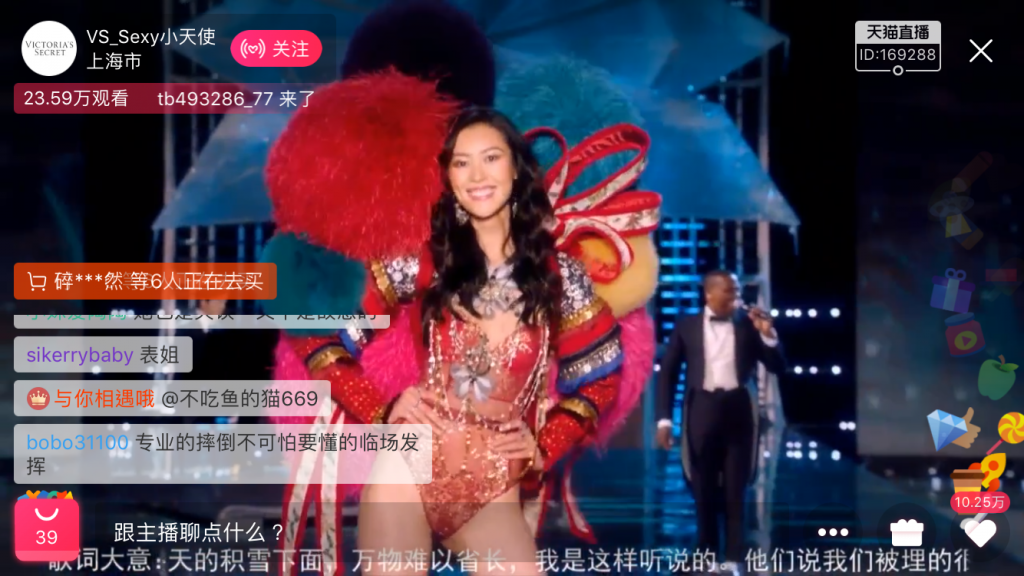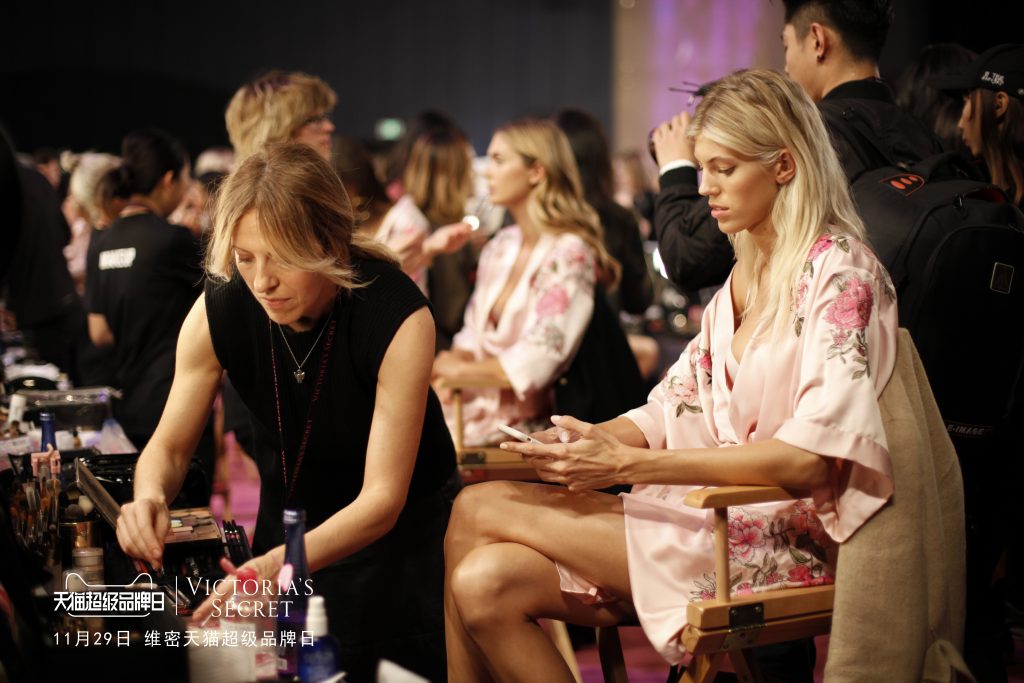
Victoria’s Secret, the global lingerie name known as much for its “Angel” supermodels and its “Bombshell” branded products, has brought its iconic fashion show to Shanghai, with Alibaba Group’s Tmall and Taobao marketplaces and video-streaming site Youku used as broadcast channels to reach the world’s most sought-after consumers.
In addition to locating the event in the world’s second-largest economy—the first time it has been held outside of the U.S. or Europe—the company is leveraging the “See Now, Buy Now” format made popular in China by Alibaba. All items seen on the runway, aside from those not yet released in the market, will be available for immediate purchase as Chinese shoppers watch the show.
Alibaba’s See Now Buy Now fashion show kicks off the 11.11 Global Shopping Festival season every year. Last month, the show mixed the latest clothes and accessories from international names such as Ralph Lauren and MAC with performances by Chinese female rap sensation VaVa and pop icon Chris Lee to create a retail-as-entertainment experience for viewers.



Beyond the sheer spectacle of the event, Alibaba also allowed viewers to buy the products featured during the show in real time, whether through the Tmall or Taobao mobile apps or even dedicated links to products that were included on the Youku viewing page. Victoria’s Secret will use this same technology for its fashion show.
“Part of Alibaba’s mission is to find the most innovative and effective ways to engage Chinese consumers, and the “See Now, Buy Now” model is one of the best examples we have yet,” said Chris Tung, Alibaba Group’s chief marketing officer. “The plan was always to make these innovations available to global brands looking to do business in China. So it’s great to see it being adopted by companies like Victoria’s Secret.”
Filmed last week at the Mercedes-Benz Arena in Shanghai, the show is scheduled to air on Nov. 28 at 10:00 p.m. EST on CBS, as well as at on Nov. 29 at 11:00 a.m. Beijing time in China.



The air date coincides with Victoria’s Secret’s “Super Brand Day” marketing campaign on Tmall, the lingerie brand’s sole e-commerce channel in China. The 24-hour promotion will give the company premier placement on all of Alibaba’s e-commerce sites and drive traffic to Victoria’s Secret’s Tmall flagship store. Alibaba will also leverage consumer analytics to better reach the lingerie giant’s target audience, helping to grow its customer base and enable deeper engagement with consumers. New visitors to the brand’s flagship store, for example, will see a selection of products tailored to their interests.
The fashion show in Shanghai and the Super Brand Day are part of Victoria’s Secret’s latest push in China. The company acquired 26 stores in China from franchisees last year, transforming its China business from a franchise model to a wholly owned model. But these stores, spread across first- and second-tier cities, only offer beauty products and accessories.
Things started to change this year, as Victoria’s Secret debuted its bras and panties in its first flagship stores in China, including in Shanghai, Chengdu and Chongqing. Beijing is next on the list, with the brand planning to open six more flagships by the end of this year.



Victoria’s Secret officially launched its Tmall flagship store in July, while introducing faster delivery services and branded packaging to its customers. It has since been embracing Alibaba’s digital-marketing tools to better reach the 500 million-plus mobile active users on Alibaba’s e-commerce platforms. Most notably, Victoria’s Secret’s models strut down the runway at Tmall’s annual live-streamed fashion extravaganzas and Victoria’s Secret Angel Lais Ribeiro (photo above) made an on-stage appearance at the countdown gala for the 11.11 Global Shopping Festival. During this year’s 11.11, sales growth for the brand grew by 10 times compared to the previous year, according to Tmall.
“The China market is too big and too important for us not to own it,” Leslie Wexner, the chairman and CEO of L Brands, the retail group which owns Victoria Secret, said in the group’s latest annual report. “Our opportunity for growth in China is very large…we are building the organization needed to support accelerated growth.”
The women’s lingerie market in China is forecasted to reach $25 billion this year, double than that of the U.S., according to Euromonitor. It is set to grow to $33 billion by 2020, the research firm reported.




